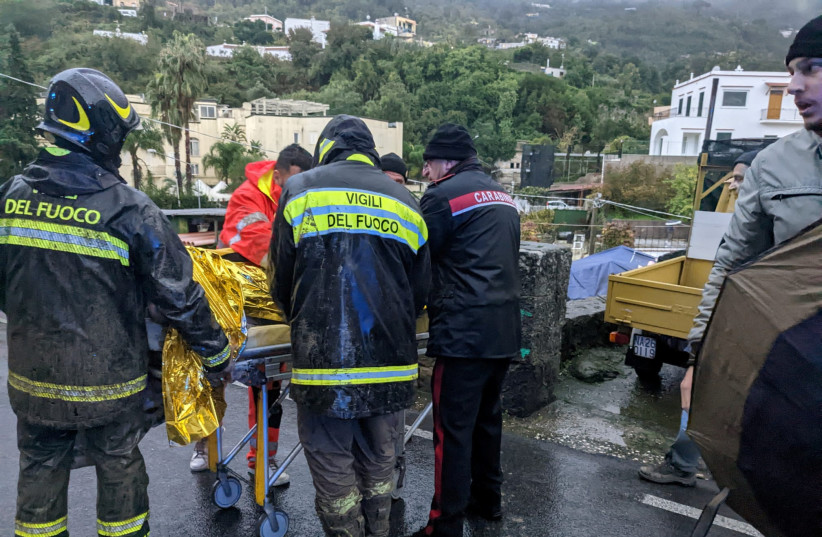At least three people, including a young girl, were killed on the southern Italian holiday island of Ischia after a landslide caused by torrential rain devastated a small town, the office of the prefect of Naples said on Sunday.
Emergency workers stepped up search efforts a day after a landslide caused by torrential rain devastated Casamicciola Terme.
Some 10 people were still missing, according to data provided by the prefect earlier on Sunday.
Dozen of emergency officials have rushed to the flood-stricken island.
On Sunday, rescue divers joined the efforts, searching the waters off the port of Casamicciola, where a wave of mud, debris and stones broke away from the island's highest mountain on Saturday and crashed down over houses and roads.

Pictures and aerial video shots showed buildings smashed by the landslide and several cars pushed into the sea by what one resident described as "a waterfall of water and mud."
Italy's new right-wing government led by Giorgia Meloni held a cabinet meeting on Sunday and issued a decree aimed at providing swift help to people in need following the disaster, including 167 people who were evacuated.
The decree earmarked an initial aid package of 2 million euros and envisaged a suspension of tax payments for residents until the end of the year.
HEAVY RAIN
Densely populated, Ischia is a volcanic island which lies some 30 km (19 miles) from Naples. It draws visitors to its thermal baths and picturesque coastline.
Episodes of heavy rainfall are becoming more common and more intense in the light of climate change, experts say, exacerbating hydrogeological risks in many parts of Italy, where housebuilders have long put up housing unlawfully.
Statistics show Ischia has a large number of houses that were built illegally, putting inhabitants at permanent risk from flooding and earthquakes - which have often hit the hilly island over the past years.
The fatal landslide has reignited political controversy over repeated pardons for some unlawful building governments had conceded for decades, as well over a reluctance to act by some politicians on addressing the issue.
"People must understand that they can't live in some areas and buildings in risky areas must be torn down," Campania governor Vincenzo De Luca told state broadcaster RAI on Sunday.
